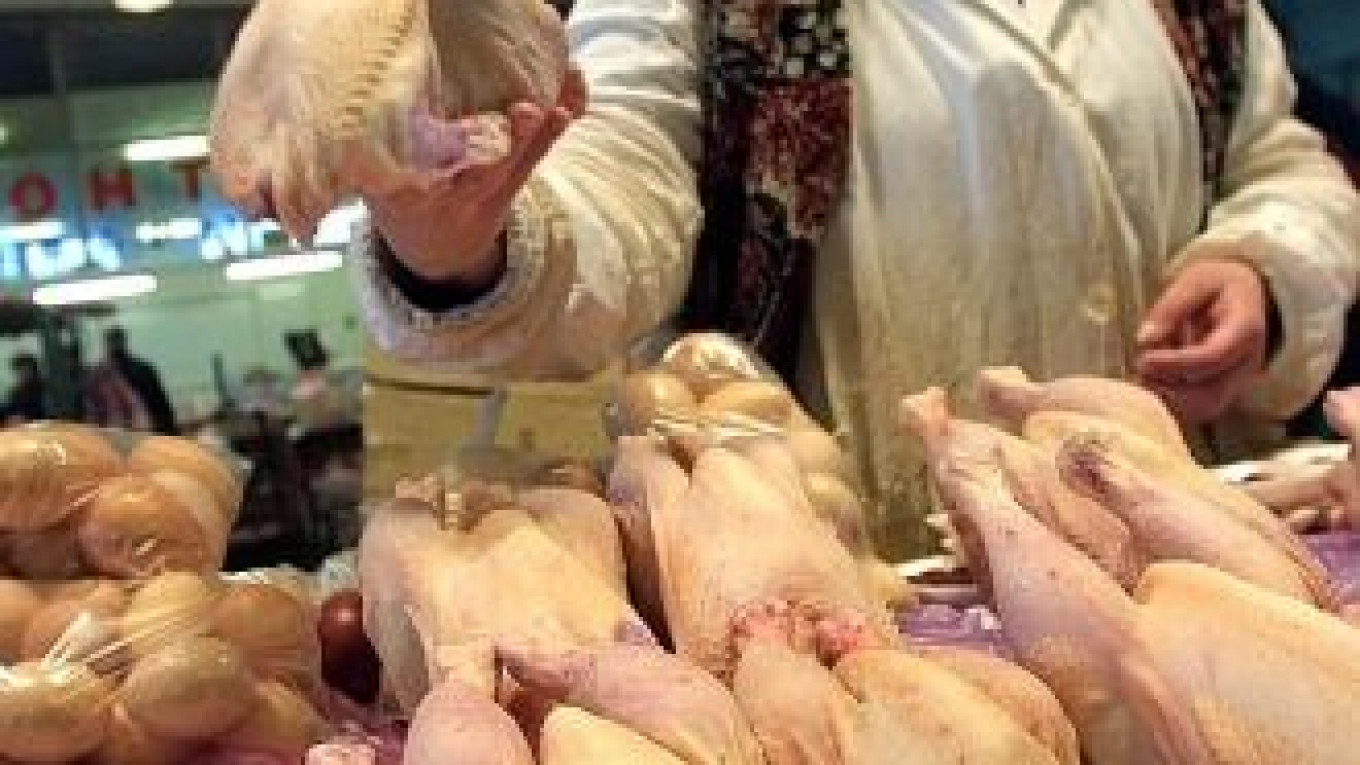MAKHACHKALA, Dagestan — A busy crossroad in the city center was full of masked camouflaged men who were stopping cars Friday for a security check.
Armed with assault rifles, the men — who by all signs represented local police — spoke little while searching the vehicles, including the one with a Moscow Times reporter, inside and out.
The scene is typical for the capital of the restive North Caucasus republic, which has seen a massive death toll over the last decade because of rampant crime and political instability.
However, the grim image of the republic doesn’t affect the confidence of some investors, who have been attracted to the region by tax breaks and other benefits provided by the government.
In a recent example, Moscow-based firm IN-Invest has teamed up with a dozen Italian companies, including Evotek, to build an agricultural complex in the valley of the Sulak River, an ambitious project costing 14 billion rubles ($455 million dollars) that local authorities hope will become one of the biggest of its kind in the south of Russia.
Dagestan President Magomedsalam Magomedov, who joined the companies implementing the project at the groundbreaking ceremony Friday, said that local and federal authorities are working on creating a favorable business climate in the republic.
“We are trying to compensate the safety risks by providing tax breaks … This makes the region economically attractive for foreign investors,” he told reporters ahead of the ceremony.
He pointed out that the republic’s investment portfolio includes a total of 74 projects jointly worth 230 billion rubles.
Magomedov said that the new agricultural project, called AgroDagItaliya, will boost the development of the republic, where agriculture is a staple industry, and help create thousands of jobs.
IN-Invest, which invests primarily in construction and agricultural projects, has contributed 23 percent of the project’s funding, with the remaining portion to be provided in loans by Russian banks, said Gadzhimurad Gadzhiyev, chief executive of AgroDagItaliya.
The complex will be built in three stages. The first one, a poultry farm, is to be completed by the end of next year, he said.
The second stage, which involves construction of a cattle farm, and the third one, construction of grain production facilities, are slated to be completed by 2018, Gadzhiyev told reporters after the ceremony.
AgroDagItaliya will produce 50,000 tons of poultry and 650 million eggs a year, with 40 percent of the products to be exported.
The company has signed preliminary agreements to export poultry to Armenia, Moldova, Poland and Luxembourg over the next 10 years, Gadzhiyev said.
Russia plans to increase annual poultry exports to 500,000 tons by 2020 from 50,000 tons this year, president of the Russian Poultry Union Vladimir Fisinin said earlier this month.
Russian poultry farms are expected to produce 3.5 million tons of poultry this year, and that figure might grow to 4 million tons by 2020, he told Interfax, adding that the increase in poultry output will result in the country fully meeting domestic demand and allowing for expanding exports.
But it will take a while before Russia’s accession to the World Trade Organization, which was widely expected to boost the country’s export potential, brings results.
Exports “are facing difficulties so far,” as European countries remain wary of buying Russian poultry, Fisinin said without specifying the reasons.
“We hoped that the European Union would buy [meat], that accession to the WTO would help to achieve this, but they show a cautious approach,” he said.
Related articles:
A Message from The Moscow Times:
Dear readers,
We are facing unprecedented challenges. Russia's Prosecutor General's Office has designated The Moscow Times as an "undesirable" organization, criminalizing our work and putting our staff at risk of prosecution. This follows our earlier unjust labeling as a "foreign agent."
These actions are direct attempts to silence independent journalism in Russia. The authorities claim our work "discredits the decisions of the Russian leadership." We see things differently: we strive to provide accurate, unbiased reporting on Russia.
We, the journalists of The Moscow Times, refuse to be silenced. But to continue our work, we need your help.
Your support, no matter how small, makes a world of difference. If you can, please support us monthly starting from just $2. It's quick to set up, and every contribution makes a significant impact.
By supporting The Moscow Times, you're defending open, independent journalism in the face of repression. Thank you for standing with us.
Remind me later.






